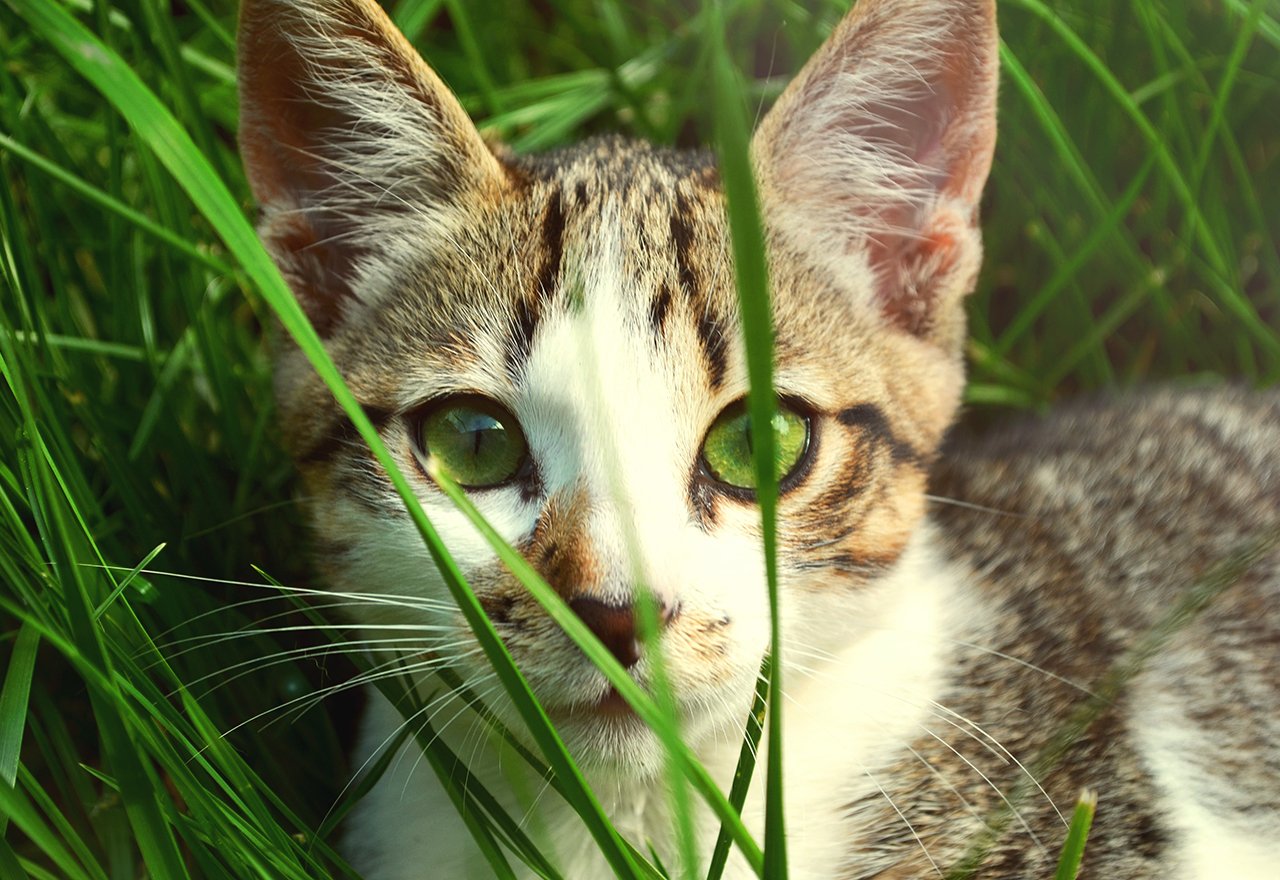Your Lawns Could be Harming Your Cats
by Leigh Marcos, on September 30, 2016

This guest post is from Leigh Marcos, a lover of all animals, especially cats. You can read more about how to care for your pets at the Shield My Pets website.
This article is personal to me. As a cat lover, I have seen first hand what going all out to have the perfect lawn can do to your cat. In my case this was the piratic Mr. Spot. The great wanderer and mischief maker supreme. This is a summary of what I’ve learned the hard way about how our lawns can affect our cats if we are not careful.
How Pesticides Affect Cats
In short, the fertilizers and pesticides we use on our lawns are poisonous to cats. As cats spend a large chunk of their time outdoors, this puts them at a higher risk of interacting with these toxic substances. Cats often nibble at grass and plants for medicinal reasons, but even if they do not, they step in the fertilizer and brush against plants sprayed with pesticides then they lick their fur and their paws while cleaning themselves.
If ingested in large enough quantities, your cat may show the following symptoms:
- Drooling
- Diarrhea
- Vomiting
- Nausea
- Bowel Obstruction
- Muddy-colored Gums
- Breathing Problems
- Strange Posture caused by Abdominal Pain
Constant contact can cause more severe reactions; especially if your cat is young, old, or unwell. It can lead to eye damage, kidney failure, the GI tract, liver, and muscles.
The Risks to Indoor Cats
Indoor cats are not completely immune to the potential problems caused by these products even though they do not come into direct contact with lawns. Their owners, us, can bring in traces of the fertilizers and pesticides into the house, which the cat then interacts with. If this laying down of surface contamination continues over time, your cat can become contaminated too with dangerous chemicals. The same goes for dogs and children, who can track these things into the house. All of this puts your cat’s health at risk.
Steps You Should Take
Concerned cat owners can only do so much, but the fight begins on the lawns themselves. You cannot control what your neighbor’s do to their lawns except by having a conversation if on friendly terms, but you can control what you put on yours. You can use compost on your lawn, water it correctly, and leave the clippings where they land, and your lawn will be fresh and beautiful even without chemical assistance. Considering the health of your cat, the few extra steps a natural strategy requires is nothing really.













